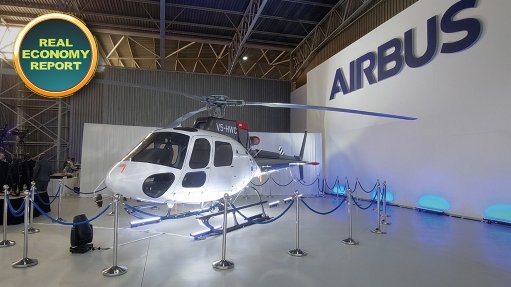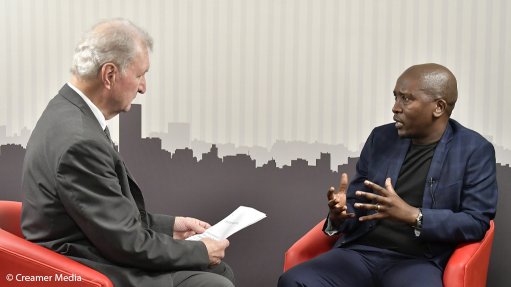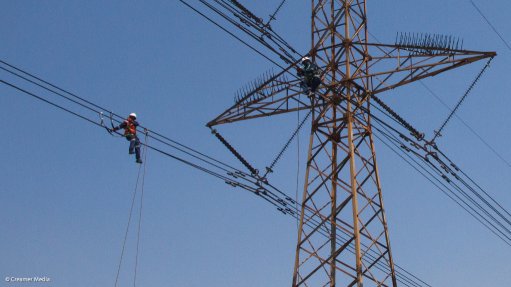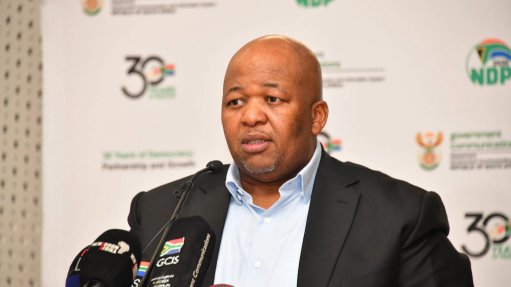Indaba highlights opportunities, considerations for manufacturers regarding AfCFTA

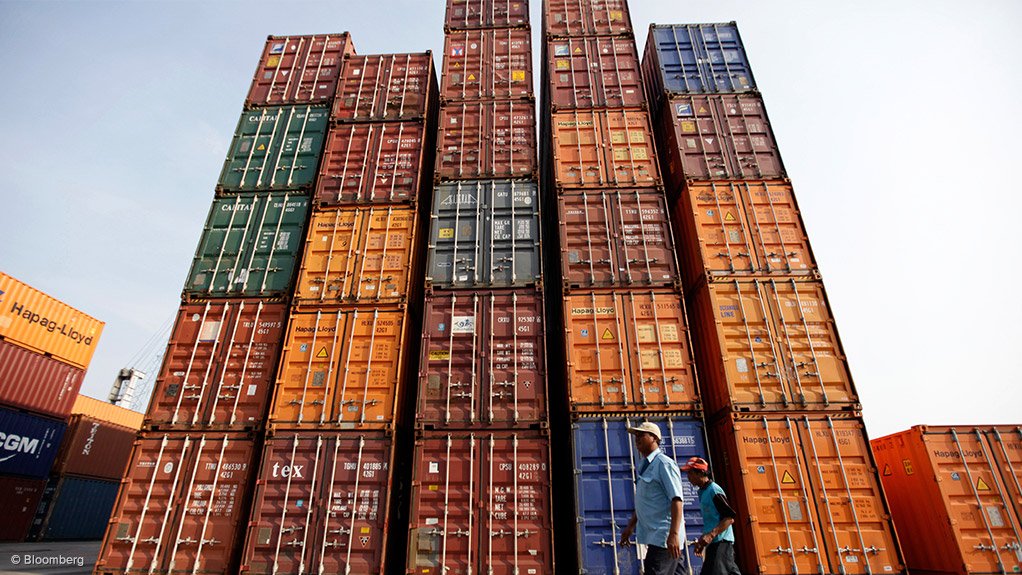
South Africa needs to address the shortcomings of its logistics infrastructure
Photo by Bloomberg
There are considerable opportunities that the continent’s manufacturers can leverage from the African Continental Free Trade Area (AfCFTA); however, there are a number of considerations and areas to address if the full benefits are to be realised.
This was highlighted by speakers on October 24, during a panel discussion as part of the Manufacturing Indaba that is being held this week in Johannesburg.
CFO Namibia principal founder Ally Angula said research had shown that the countries in Africa were trading very basic commodities among themselves. She averred that the AfCFTA would challenge manufacturers to diversify and broaden this scope into more refined products, and to then enter the trade ladder.
She also called for rectifying critical infrastructure such as ports, and for those responsible for this to liaise with manufacturers to ensure that what they needed was considered in planning.
She mentioned a major challenge to doing business across Africa as moving money across the continent being very difficult. However, this also presented an opportunity in a growing market.
PPC South Africa cement and materials MD Njombo Lekula said the AfCFTA provided potential financial opportunities valued at billions of dollars and that this was important as manufacturers sought to achieve better economies of scale.
He also emphasised the need to flesh out what each country was best at and to create hubs for this in each respective area to ensure that there was no unnecessary overlap in terms of producing products.
Lekula also highlighted the need to fix infrastructure across the continent to ensure it could support trade.
He also called for discussions around a unified currency, with business in a position to play an influencing role in this.
BrightWolves South Africa principal Coenraad Bezuidenhout said manufacturers should concentrate on positioning themselves for the future.
He advised manufacturers to leverage technology and artificial intelligence and to pursue sustainability.
In terms of the latter, Bezuidenhout explained that industrialisation for the sake of only economic output was no longer viable, and rather, the focus should be on the role manufacturing can play in the value economy, as this would help in building value creation from the bottom up and engendering innovation.
He mentioned repair economies as an example of something that can provide this value addition.
Industrial Development Corporation manufacturing divisional executive Imran Sayed reiterated the need for critical infrastructure, as well as for institutional capacity.
He mentioned that there was also a trust deficit between business and government in many post-colonial societies in Africa and that to rebuild this required effort from both sides.
Sayed also said collaboration should not be limited to only high-level engagement but should also allow for bottom-up and local successes that can be duplicated. He emphasised that there must be agreement across the continent that this approach would be prioritised.
Sayed also highlighted the need for implementation of plans for the AfCFTA.
Business Unity South Africa CEO Cas Coovadia pointed out that the supply chain disruptions experienced during the pandemic showcased the inequality of many African countries and their lack of self-sufficiency.
He said the AfCFTA had a considerable role to play in unlocking potential, but that it was imperative that organisations had a level of maturity to collaborate properly across countries, as historically, there had not been the best record of this.
He also noted an opportunity developing skills and capabilities, with this also requiring collaboration among different manufacturers and trade organisations.
Coovadia emphasised that policy certainty will also be key, as this is one of the biggest challenges countries in the continent face in terms of attracting foreign direct investment.
Comments
Press Office
Announcements
What's On
Subscribe to improve your user experience...
Option 1 (equivalent of R125 a month):
Receive a weekly copy of Creamer Media's Engineering News & Mining Weekly magazine
(print copy for those in South Africa and e-magazine for those outside of South Africa)
Receive daily email newsletters
Access to full search results
Access archive of magazine back copies
Access to Projects in Progress
Access to ONE Research Report of your choice in PDF format
Option 2 (equivalent of R375 a month):
All benefits from Option 1
PLUS
Access to Creamer Media's Research Channel Africa for ALL Research Reports, in PDF format, on various industrial and mining sectors
including Electricity; Water; Energy Transition; Hydrogen; Roads, Rail and Ports; Coal; Gold; Platinum; Battery Metals; etc.
Already a subscriber?
Forgotten your password?
Receive weekly copy of Creamer Media's Engineering News & Mining Weekly magazine (print copy for those in South Africa and e-magazine for those outside of South Africa)
➕
Recieve daily email newsletters
➕
Access to full search results
➕
Access archive of magazine back copies
➕
Access to Projects in Progress
➕
Access to ONE Research Report of your choice in PDF format
RESEARCH CHANNEL AFRICA
R4500 (equivalent of R375 a month)
SUBSCRIBEAll benefits from Option 1
➕
Access to Creamer Media's Research Channel Africa for ALL Research Reports on various industrial and mining sectors, in PDF format, including on:
Electricity
➕
Water
➕
Energy Transition
➕
Hydrogen
➕
Roads, Rail and Ports
➕
Coal
➕
Gold
➕
Platinum
➕
Battery Metals
➕
etc.
Receive all benefits from Option 1 or Option 2 delivered to numerous people at your company
➕
Multiple User names and Passwords for simultaneous log-ins
➕
Intranet integration access to all in your organisation










